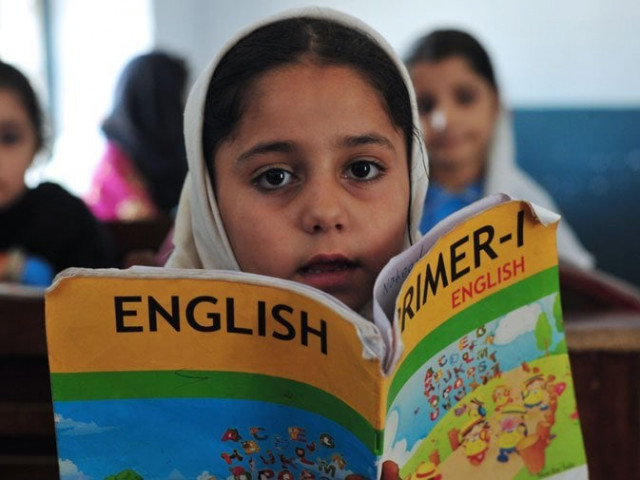Teaching English still an uphill task for developing countries
Panel reflects on the problems that teachers face during instruction of another language and their solutions

On the list of international languages, English has always maintained its spot as one of the most important academic and professional tools. However, for most developing nations, using English as a medium of teaching to compete with the rest of the world remains a daunting task.
To make instruction of the language less demoralising in Pakistan’s context, the Society of Pakistan English Language Teachers (SPELT), on its 37th anniversary, held a panel discussion to bring to the attention of its members and English language teachers to resources they can employ to tackle daily challenges.
The panel discussion of which was based on the themes of two books namely “Research on Teaching and Learning English in Under-Resourced Contexts” and “International Perspective on Teaching English in Difficult Circumstances", consisted of academics from all over the world.
“This feels to me like an international book club,” said Professor Dr Kathi Bailey representing the International Research Foundation for English Language Education (TIRF) as she gave an overview of the books and highlighted issues that she had personally come across teaching in under-resourced environments like Pakistan.
The typical challenges, as pointed out by the panel, faced by instructors of impoverished nations in teaching English include overcrowded classrooms, lack of technology, and the students’ lack of motivation to learn the language.
Furthermore, Dr Ozgur Sahan, a panelist from Turkey, drew attention to the effects of regional conflict and refugees on schools, and to the cross-cultural challenges teachers can face even in their home country. “All relevant in our motherland’s context as we have opened the door to refugees, struggle with overpopulation, and are unsure of whether the national language should be used as a method of instruction in different provinces,” he said.
Sahan also highlighted how the power barrier between teachers and administrators of schools negatively impacts instruction abilities as teachers cannot then implement new ideas successfully. This makes their duty to teach harder as they are often implored to think global in terms of solutions but act local in their under-resourced schools.
English language teachers were advised to use games and visuals to increase students’ motivation, attract their attention, and overcome a lack of technology. It was also suggested that tailor-made materials should be prepared for students when course books are not sufficient to overcome attention-span challenges in the classroom.
Dr Fauzia Shamim, a panelist from Karachi's Ziauddin University, suggested that the system should allow English teachers to implement solutions they see fit. "This would help teachers develop feelings of self-efficacy, teacher agency and teacher autonomy and only then local challenges can be overcome."



















COMMENTS
Comments are moderated and generally will be posted if they are on-topic and not abusive.
For more information, please see our Comments FAQ